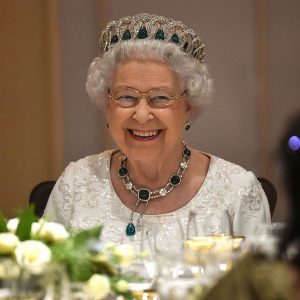Britain’s King Charles III, who marks a year since his coronation on Monday, has seen his reign blown off course by illness but aims to get it back on track to establish a renewed bond with the public.
His disclosure in February that he had been diagnosed with cancer, followed by a similar palace announcement in March that his daughter-in-law Kate, the Princess of Wales, had begun cancer treatment, has shaken the 1,200 year-old monarchy, which serves not only the UK but also 14 other overseas realms including Australia, New Zealand, and Canada.
Faced with the tough task of following his mother Queen Elizabeth II after her unprecedented 70 years on the throne, Charles’s reign got off to a strong start with a much smoother transition than many of his countrymen expected.
But his and Kate’s enforced absence from public duties – initially while they recovered from a prostate procedure and abdominal surgery respectively and then later began cancer treatment – has left a vacuum in the normal work of the monarchy and prompted concerns about the future.
Both royals have won plaudits for being open about their treatment but there are significant unanswered questions over the specific type of cancers they have and their prospects of a full recovery.
For the British, who have largely remained supportive of the king and his family according to opinion polls, there was the reassuring sight last Tuesday of Charles, 75, returning to public-facing duties with a visit to a cancer treatment centre in London.
Buckingham Palace officials have said he hopes to step up his public appearances in May and June, the busiest months in the royal calendar, but that will be subject to advice from doctors, who are increasingly positive about his prognosis.
The common man can now relate to him much more than he did before
Ingrid Seward, royal biographer
Royal biographer Ingrid Seward, whose latest book, My Mother and I, about the relationship between Charles and the late Queen, has become a bestseller, believes the way he has handled his illness and shared his experiences with the public has won him sympathy and greater support.
“The common man can now relate to him much more than he did before,” she said, while acknowledging: “He does look very pale and tired, with red eyes.”
Holding hands with other cancer patients and talking frankly about the emotional strains of his diagnosis, Charles displayed his vulnerability during the visit on Tuesday. He told one patient: “It’s always a bit of a shock, isn’t it, when they tell you.”
Sally Bedell Smith, an American royal biographer, agrees it has improved his standing. “If he is able to make his way through this treatment and have a normal life, which is the case for a lot of people these days, I think it will enhance his popularity,” she said.

King Charles III and Queen Camilla wave from the Buckingham Palace balcony during the coronation celebrations. Getty
Charles spent half a century using his position to speak out about controversial subjects such as climate change, architecture, education, complementary medicine, youth unemployment and other issues in a break with his mother’s much more traditional ribbon-cutting approach to monarchy.
“She was not an advocate in the way that Charles was for all those years as Prince of Wales,” Bedell Smith said. “He wanted to save the world and he found ways of raising his voice.”
Since becoming king, however, he has bitten his tongue and toned it all down, while still using his convening powers to bring together policymakers working to limit climate change and other challenges.
Charles has not abandoned activism entirely. He has encouraged interfaith understanding at home and in the Middle East. He has also made it a cornerstone of his reign to help to heal divisions over the legacy of slavery and Britain’s colonial past. He has commissioned research into his royal ancestors’ involvement in the slave trade going back to Elizabeth I in the 16th century.

William, Prince of Wales, has focused on fewer more intense, campaigning engagements. Getty
In Kenya on his first state visit to a Commonwealth country as King in October last year, he expressed his sorrow and regret over Britain’s execution, torture and maiming of up to 90,000 Kenyans suspected of supporting the Mau Mau independence rebellion between 1952 and 1960.
“The wrongdoings of the past are a cause of the greatest sorrow and the deepest regret,” he said. “In coming back to Kenya, it matters greatly to me that I should deepen my own understanding of these wrongs, and that I meet some of those whose lives and communities were so grievously affected.”
Back home he marked his 75th birthday and coronation year by launching a project to use surplus food in the supply chain to help 13 million people in the UK struggling to feed themselves.





